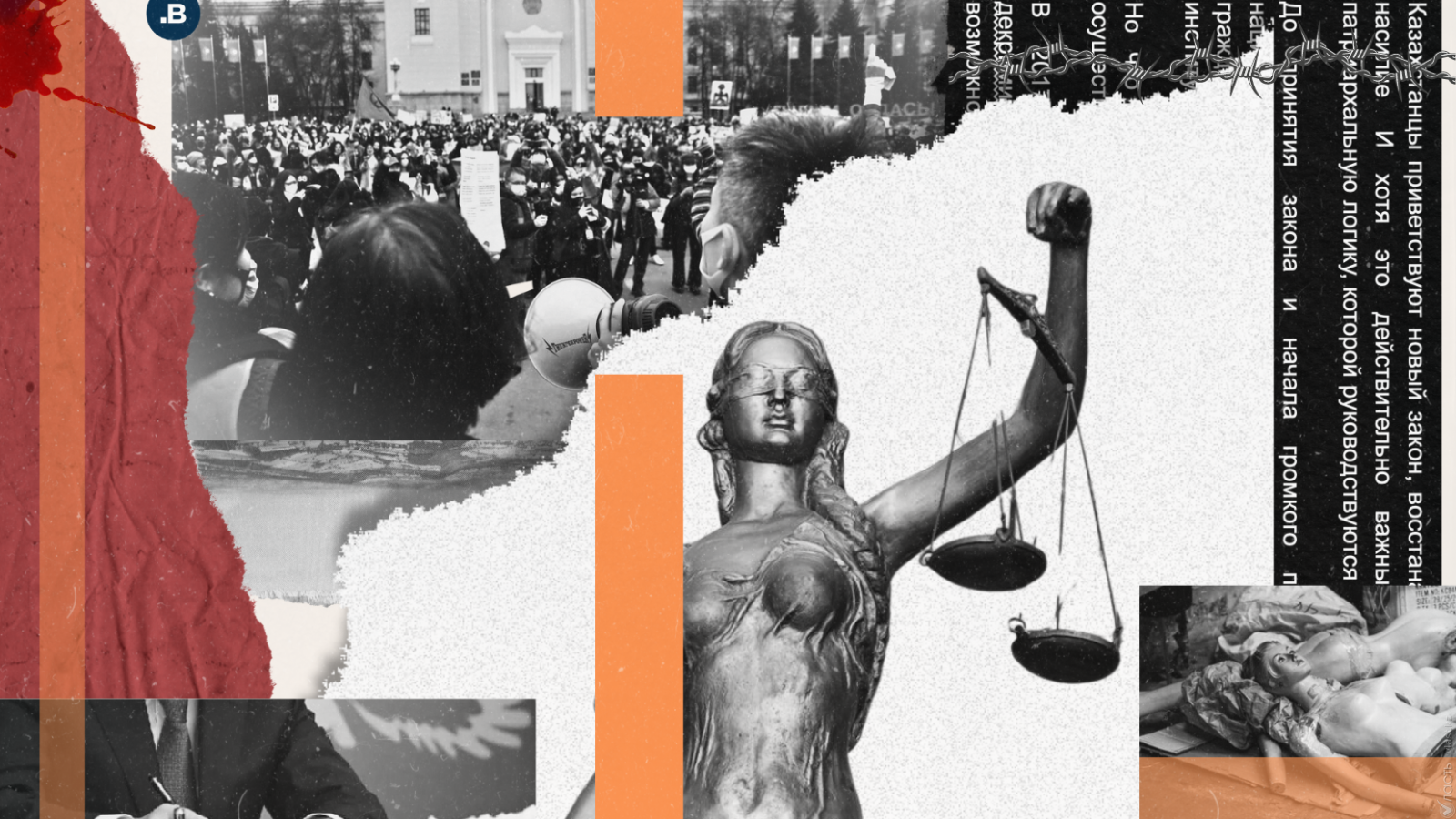People in Kazakhstan are hailing a new, stricter law that increases punishment against domestic violence. While this can be considered a step forward, it still protects the patriarchal logic the state apparatus hinges on.
Before the law was passed, during the high-profile trial of a former minister accused of beating and killing his wife with cruelty, many said that state institutions had failed to protect women.
But what if the opposite is true, and the purpose of these institutions is in fact to protect the abusers?
In 2017, then-President Nursultan Nazarbayev signed a law decriminalizing violence against women. In fact, this made it possible to bail out the perpetrators with a fine.
Recently, the ministry of internal affairs reported receiving 99,000 complaints regarding violence against women in 2023. Criminal cases were opened in only 1,000 cases, and civil cases in 79,000 cases. Punishment for the latter included small fines and short administrative detentions.
The ministry also reported that in 70% of cases the police cannot take any action against abusers because the victims refuse to report them. However, we know that shunning victims of violence is a standard police tactic. Law enforcement officials widely hold the prejudice that women are the instigators of conflicts.
A massive number of cases of gender-based violence is not accounted for in official statistics. But if one of them seeps through the media cycle despite the barriers at the police station, state institutions pretend not to notice it, or drown it out with moralizing lectures, a favorite mechanism of patriarchy.
We all remember the comments of Senate Speaker Maulen Ashimbaev about the murder of Saltanat Nukenova and other acts of violence against women. He confidently stated that the law protects women, and that the problem lies in the poor upbringing of their spouses.
The paradox is that patriarchal attitudes are rooted in our upbringing, as state institutions, mostly filled with wealthy and influential men, teach us about respect for authority.
That is why we are forced to continuously listen to former minister Kuandyk Bishimbayev’s complaints that his wife is ultimately to blame for her death. And we watch as he and his lawyers try to achieve a more lenient sentence or even an acquittal. And this would have easily worked if the case had not been under the whole nation’s spotlight.
If not for the wide resonance, the Nukenova murder case would have ended, like tens of thousands of others, with a modest sentence for the killer or even a fine. But the authorities were forced to make concessions and reinstate violence against women into the Criminal Code in order to avoid a blow to their legitimacy.
However, the new law still has the potential for patriarchal revenge. The passage about protecting “traditional family values” gives institutions wide space to trump up threats. And the patriarchal state will use this gray zone to continue to protect abusers.
Поддержите журналистику, которой доверяют.








